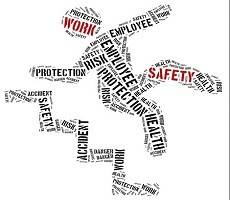August 26, 2016
Bridging the generation gap is the key to a happier workforce 0
 People who work in multigenerational teams are much more engaged and likely to deliver higher levels of customer service a new report suggests. In a survey of over 32,000 of McDonald’s own UK employees, their people who work with a cross-section of ages registered a 10 percent increase in happiness levels compared to those who work with their peer group. With the GCSE results just in, the fast food retailer wanted to gauge attitudes among potential future employees, so McDonald’s UK commissioned a census of 5,000 people representing each of the five working generations. It revealed that adults of all ages are united in wanting to be part of a multigenerational workforce. In fact, the opportunity to work with people of different ages was the top priority for more than half of all respondents (58 percent) and this factor was important for older people born between 1900 and 1964 (67 percent), as well as 16-year olds (57 percent).
People who work in multigenerational teams are much more engaged and likely to deliver higher levels of customer service a new report suggests. In a survey of over 32,000 of McDonald’s own UK employees, their people who work with a cross-section of ages registered a 10 percent increase in happiness levels compared to those who work with their peer group. With the GCSE results just in, the fast food retailer wanted to gauge attitudes among potential future employees, so McDonald’s UK commissioned a census of 5,000 people representing each of the five working generations. It revealed that adults of all ages are united in wanting to be part of a multigenerational workforce. In fact, the opportunity to work with people of different ages was the top priority for more than half of all respondents (58 percent) and this factor was important for older people born between 1900 and 1964 (67 percent), as well as 16-year olds (57 percent).


















 A ‘stiff upper lip’ attitude towards wellness by UK bosses needs to change in order to advance employee wellbeing, argues a survey by Bupa. It is business leaders who are the key to overcoming the challenges facing employees’ health and wellbeing, it claims. The vast majority (94 percent) of those questioned believe there will be significant change in the employer-employee relationship in the next ten years. 91 percent of business leaders agree that technology will continue to impact the wellbeing of their workforce over the next decade and 71 percent agree the standard 9am-5pm working day is a thing of the past. Seven in ten (68 percent) noted a ‘stiff upper lip attitude’ at executive level, creating barriers to conversations about wellbeing, and three fifths (62 percent) of leaders think they need to show that they don’t suffer from ill health.
A ‘stiff upper lip’ attitude towards wellness by UK bosses needs to change in order to advance employee wellbeing, argues a survey by Bupa. It is business leaders who are the key to overcoming the challenges facing employees’ health and wellbeing, it claims. The vast majority (94 percent) of those questioned believe there will be significant change in the employer-employee relationship in the next ten years. 91 percent of business leaders agree that technology will continue to impact the wellbeing of their workforce over the next decade and 71 percent agree the standard 9am-5pm working day is a thing of the past. Seven in ten (68 percent) noted a ‘stiff upper lip attitude’ at executive level, creating barriers to conversations about wellbeing, and three fifths (62 percent) of leaders think they need to show that they don’t suffer from ill health.
 Management behaviour is contributing to rising workplace stress levels with employees blaming their own bosses for adding to the pressures they feel, a new study of 1,200 people by MetLife claims. The study suggests that 69 percent of employees say that the behaviour of managers in their organisation has increased stress and that the rising stress is having a major impact on company performance. Around 45 percent of employees say that stress caused by management has led to staff in their organisation taking extended time off. This in turn increases costs and affects productivity as well as impacting other workers who take on an increased workload. Government data estimates that around 35 percent of all work-related ill-health is caused by stress and that stress accounts for 43 percent of all working days lost to ill-health – the equivalent of 9.9 million working days a year at an average of 23 days per case.
Management behaviour is contributing to rising workplace stress levels with employees blaming their own bosses for adding to the pressures they feel, a new study of 1,200 people by MetLife claims. The study suggests that 69 percent of employees say that the behaviour of managers in their organisation has increased stress and that the rising stress is having a major impact on company performance. Around 45 percent of employees say that stress caused by management has led to staff in their organisation taking extended time off. This in turn increases costs and affects productivity as well as impacting other workers who take on an increased workload. Government data estimates that around 35 percent of all work-related ill-health is caused by stress and that stress accounts for 43 percent of all working days lost to ill-health – the equivalent of 9.9 million working days a year at an average of 23 days per case.


















August 23, 2016
US Millennials ‘martyred’ behaviour helps drive culture of presenteeism 0
by Sara Bean • Comment, Flexible working, News, Wellbeing, Workplace
More →